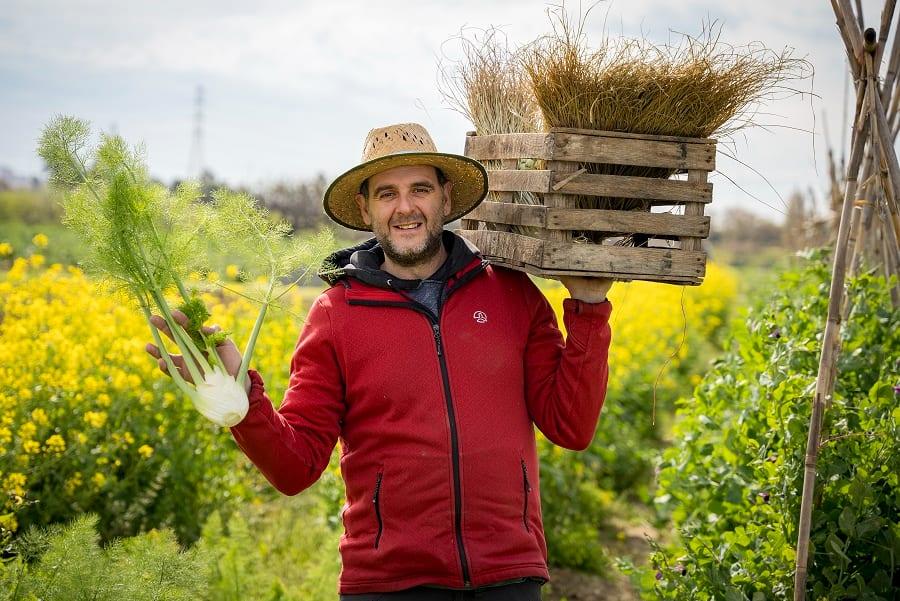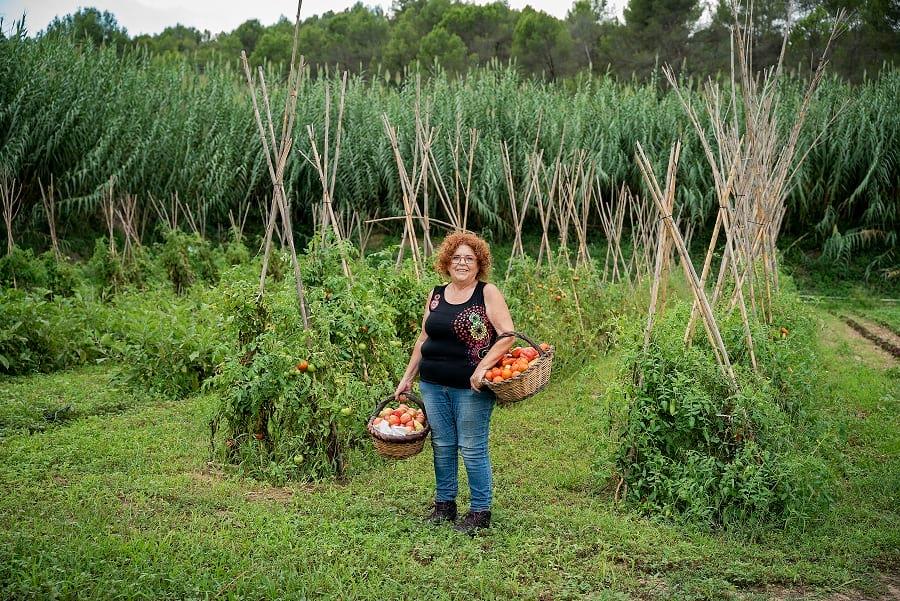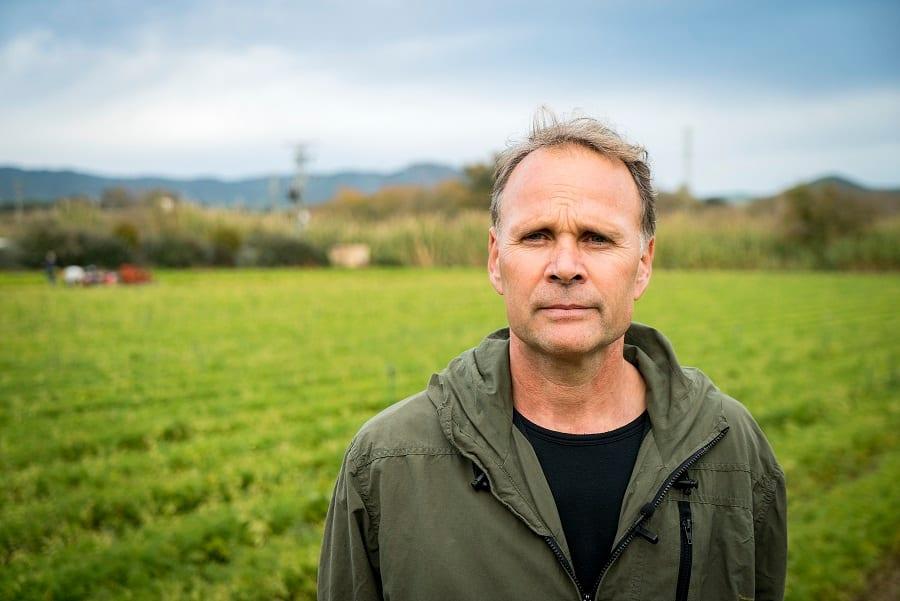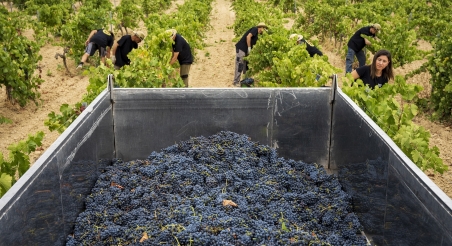In the province of Barcelona, 15% of cultivated land is organic. However, 66% of this area is dedicated to vineyards for the production of cava and wine, a growing trend that other crops do not follow. According to 2020 data, the area of organic vegetable gardens in the region has remained largely unchanged since 2015, and, in fact, this type of cultivation is currently 8 points behind the target set by the European Union, which aims for 25% of the agricultural land in member states to be organically farmed by 2030.
On International Earth Day, we present three farmers who are convinced of the importance of practising environmentally friendly agriculture. They are certain that the future will be green or not at all, and they are committed to a method of food production that is expected to play a crucial role in the coming years.
Lluís Fisas, farmer at Lower Llobregat Agrarian Park

Lluís Fisas, Can Fisas. PATXI URIZ | BARCELONA PROVINCIAL COUNCIL
Lluís Fisas works the land at Can Fisas, a beautiful estate founded by his great-grandfather, which today is a leading agroecological project. At home, they always said, “You reap what you sow,” and Lluís has taken this saying to heart, smiling as he contemplates the fruits of his labour. The satisfaction he gets from producing organically is enormous, especially because he believes that this type of farming is the most respectful of the environment and human health. In line with this philosophy, at Can Fisas, they grow crops in the open air, following the natural rhythm of the seasons and without overexploiting the land. They fertilise exclusively with natural manure and do not use synthetic chemicals such as fertilisers, fungicides, or herbicides. Additionally, they plant aromatic, edible, and medicinal plants to attract fauna that naturally controls pests.
Thanks to the care they've put in over the years, they produce healthy, sustainable food that serves not only the residents of Molins de Rei, the municipality in the Lower Llobregat Agrarian Park where the estate is located, but also everyone who visits their stall at the Concepció Market in Barcelona.
Maria Rovira, farmer at Montserrat Rural Park

Maria Rovira, From Maria Eco. PATXI URIZ | BARCELONA PROVINCIAL COUNCIL
Maria Rovira took over her family’s land in La Fortesa almost thirty years ago, a small village in the municipality of Piera, right where the Anoia region ends and Alt Penedès begins. There, with the help of Lourdes Gómez, a talented young farmer who shares her passion for plants, she tends the vegetable garden, vineyard, olive groves, and fruit trees, producing the highest quality organic food.
Among their standout products are tomatoes, potatoes, and aubergines, while among the fruits, their peaches, cherries, apricots, plums, and pears, grown on the southern slopes of the Montserrat Rural Park, are highly valued. That said, their selection changes with the seasons, and right now, for example, it’s time for asparagus, green garlic, and broad beans. A large portion of the harvest is sold directly at the farm, but they also deliver boxes that are the stuff of dreams.
Miquel Riera, farmer at Lower Tordera Agrarian Space

Miquel Riera, Horta Pla de Munt. PATXI URIZ | BARCELONA PROVINCIAL COUNCIL
The son of farmers, Miquel Riera is one of those people who felt the call of the land from a young age. In fact, he studied agricultural vocational training, and by the age of 18, he was already working on a farm in the Cinc Sènies of Mataró. His own project was born soon after, in 1999, with the unconditional support of his wife, who was pregnant with their first child. For the next seven years, the family practised fairly conventional farming, but everything changed in 2006. During her fourth pregnancy, Silvia developed chemical sensitivity, and convinced they needed to detoxify their surroundings, they decided to convert Horta Pla de Munt to organic farming.
Today, Miquel is proud of the way they farm and is deeply committed to a food production system that respects both human health and the health of ecosystems. He also takes great care to offer his products at a reasonable price. To achieve this, his farm includes a small shop where he sells the fruits and vegetables they grow, along with other locally sourced products. A wide range of top-quality organic produce, available in the heart of an unexpected paradise: the Lower Tordera Agrarian Space.
— BCN Smart Rural Editorial —






